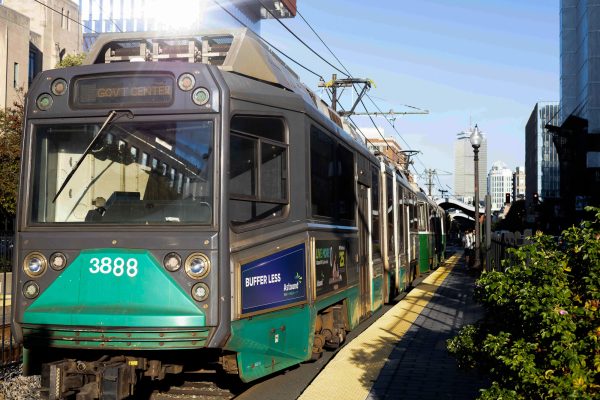The United States Department of Transportation has threatened to withhold or redirect funding for the Massachusetts Bay Transportation Authority if it does not share a plan focused on minimizing criminal activity on the T, despite recent reports of reduced crime rates by the Boston Police Department.

MBTA General Manager and CEO Phillip Eng received a letter from U.S. Secretary of Transportation Sean Duffy Sept. 18 requesting the public agency provide the Federal Transit Administration with “plans to reduce crime, vagrancy, and fare evasion on the transit system.”
In the letter, Duffy said the MBTA should funnel federal resources into crime prevention and security measures at Boston transit hubs, specifically South Station.
“Earlier last week, I spoke with the FTA Administrator Marc Molinaro in Boston about our shared commitment in ensuring the security of every passenger, and we are in agreement about providing the safest commute possible for all riders and employees,” Eng wrote in a statement to The Daily Free Press on Monday.
Less than a month ago, another Trump official hinted at a possible federal takeover of the bustling station, citing safety and cleanliness concerns.
Despite federal claims of heightened vagrancy and criminal activity in the area, crime rates are relatively low when compared to the high volume of riders and other major transportation stations, according to the Boston Globe.
While tens of thousands of people shuffle through the station daily, Transit Police data reveals there have been 22 violent or property crime incidents in 2025, a 16% drop from 2024.
“The T and the Healey-Driscoll administration are really prioritizing safety, whether it be the safety of our tracks, or the safety of our signals and the operations, but also the safety for people who are riding the system,” said Caitlin Allen-Connelly, executive director of TransitMatters, a regional transportation advocacy group.
Boston resident Tatiana Roberson said she has never witnessed any criminal activity at a Boston station.
“The train can get a little crowded, especially during rush hour, to the point you’re barely able to breathe or move on it, but I haven’t felt like I was in danger,” she said.
BU students and faculty echoed this sentiment.
“It’s pretty clean. I’ve never had a really, really bad experience,” said Shepherd Currie, a BU undergraduate student. “I think efficiency is more where the problem lies.”
Sam Greives, a proposal and grants administrator in the BU physics department, commutes to work on the T every day with few safety concerns.
“Crime anywhere is a problem, but I don’t think it is worse of a problem on the T than it is in the rest of Boston,” Greives said.
While safety on the T may not be a pressing issue for Boston residents and students, schedule inconsistencies, station bathroom cleanliness and infrequent trains tend to dampen commutes.
“The T has made safety a top priority,”Allen-Connelly said. ”We’ve seen that through the track improvement program that they implemented, and with the ongoing work they’re doing on signals and other state of good repair backlogs, that they are making their way through.”
The MBTA claims their Track Improvement Program, completed in 2024, has saved riders an average of 2.4 million minutes due to the removal of speed restriction.
“Any incident is one incident too many, obviously, but that doesn’t mean that our whole entire system and network is unsafe,” Allen-Connelly said.